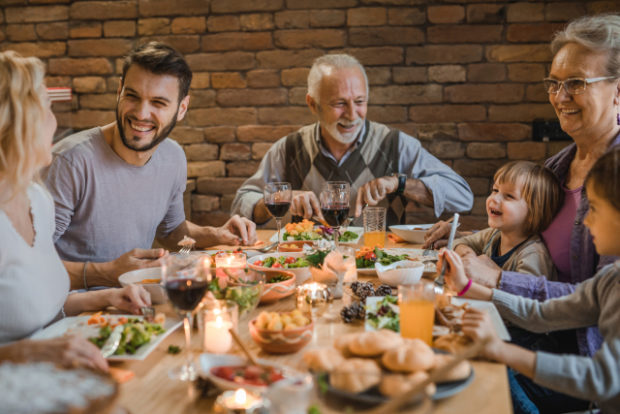We may eat more when we’re with family or friends, says study

INQUIRER.net stock photo
A meta-analysis study suggests that we tend to eat more when we are in a group, a phenomenon researchers call “social facilitation.”
The tendency to eat more than usual when we are in a group is not a myth and may even have a scientific explanation, according to a recent study published in The American Journal of Clinical Nutrition.
Prior research has shown that those who eat in the company of others may consume up to 48% more than those who prefer to eat alone.
In an attempt to explain this phenomenon, researchers from the University of Birmingham, the University of Bristol and the University of New South Wales analyzed 42 journal reviews on the subject.
Two among those showed that the effects of social context on eating could be partly likened to meal length and social attitudes about the “appropriate” amounts to eat.
Social norms also play a role
The phenomenon, called social facilitation, may be explained by the fact that eating with other people is generally more pleasant. This social reward could thus be at the origin of overeating, the study suggests.
According to the researchers, social norms, which tend to be more “permissive” about eating large quantities of food in group situations than towards those who overeat while alone, may also play an important role.
On the other hand, this tendency is less noticeable when dinner guests do not know each other well.
“People want to convey positive impressions to strangers. Selecting small portions may provide a means of doing so and this may be why the social facilitation of eating is less pronounced amongst groups of strangers,” said Dr. Helen Ruddock, a professor at the School of Psychology in the University of Birmingham and the study’s lead author. RGA
RELATED STORIES:
Increasing red meat intake may also increase risk of death, says study
Poor diet low in fruit and veggies, high in junk food linked with increased risk of mental illness